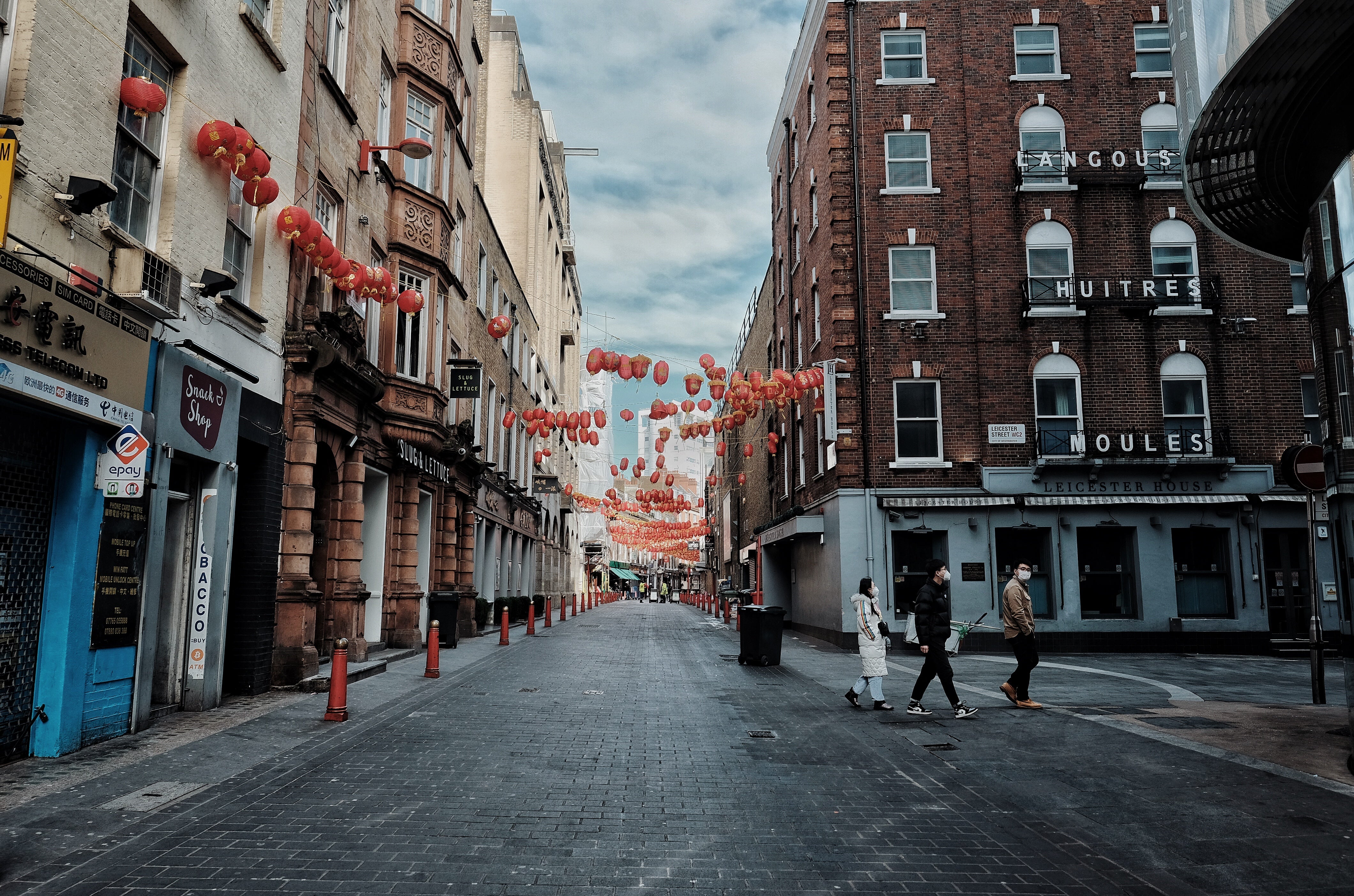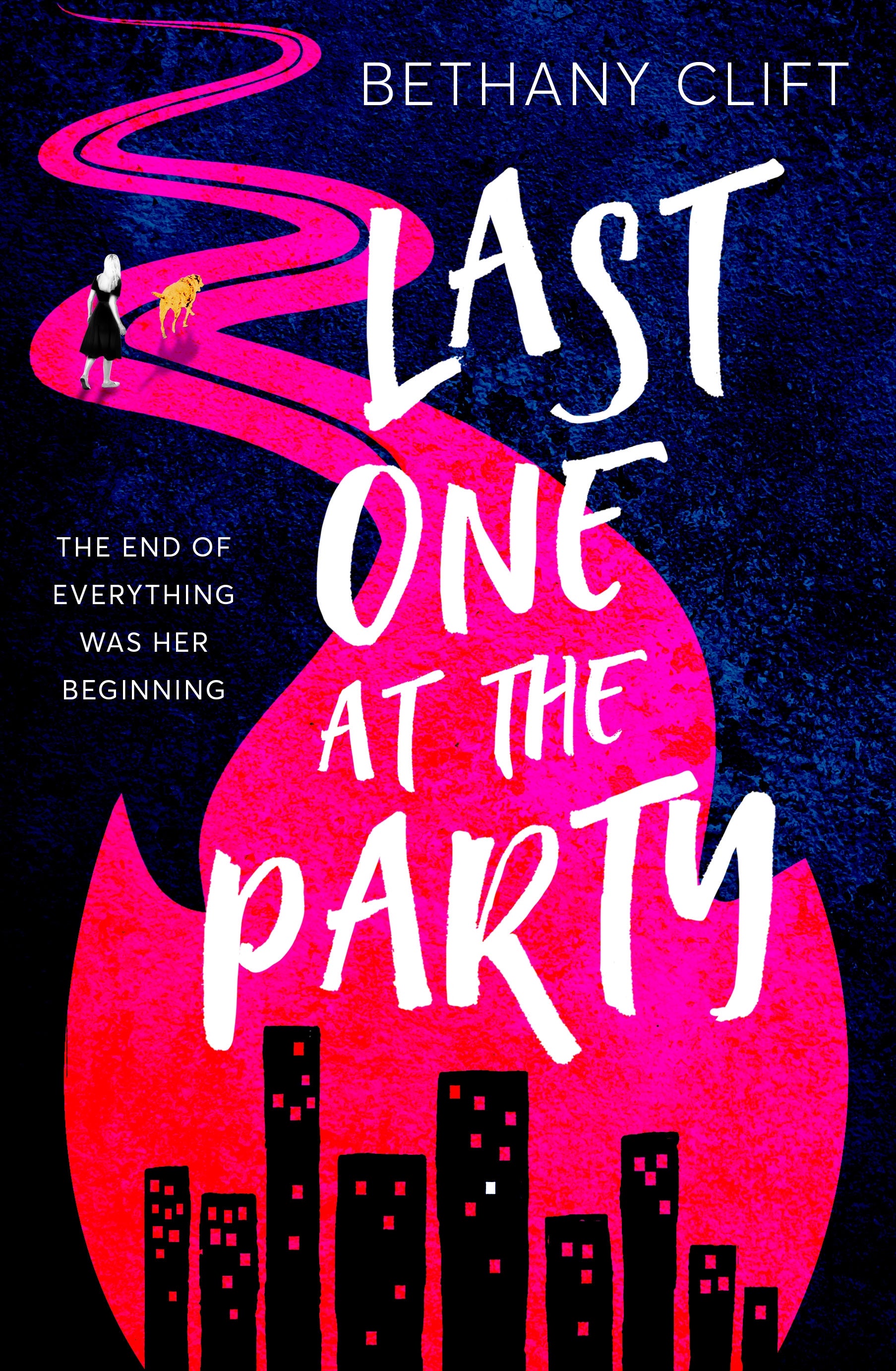The debut novel that predicted the pandemic two years before coronavirus
When Bethany Clift began writing about people wearing face masks and social distancing to protect themselves from a deadly virus, little did she know it was about to come true, writes Tufayel Ahmed

Bethany Clift, the debut author behind new pandemic novel Last One at the Party, has some admittedly strange advice for prospective readers: it’s OK not to read it. “I am very sensitive to the fact that there is a pandemic in it and for a lot of people this has been a terrible, terrible year,” Clift tells The Independent. “I understand there’s going to be a contingent of people who aren’t going to want to touch this with a bargepole. And to them, I say: just don’t. Just don’t read it.”
But readers who do brave Clift’s novel (published by Hodder and Stoughton) is a riotous, black-humoured tonic to get you through this latest national lockdown.
The book follows the aftermath of a deadly pandemic that has wiped out everybody on earth, but one woman. Told in first-person through diary entries, this unnamed protagonist is seemingly ill-equipped to deal with the newfound world she finds herself in, having lived a relatively sheltered life before the deadly 6DM virus wiped out the planet. Clift’s heroine is more Bridget Jones than Ripley, Sigourney Weaver’s ultimate fiction heroine in Alien, as she struggles to acclimate to the end of humanity and no internet. There’s a real element of Helen Fielding, the author of the Bridget Jones novels, in Clift’s writing, which is in turns laugh-out-loud funny – Clift writes of casing Harrods and touching all the priceless dinosaur bones at the Natural History Museum – and heartrending.
Clift says that despite the pandemic plot device, Last One at the Party is not “about death, it’s about life. It’s about her and her journey and her survival.” The novel uses its fictional killer virus to begin the protagonist on her journey and the parallels to the coronavirus largely play out in the opening chapters of the book. That is the reason why Clift’s contagion is called 6DM, short for 6 Days Maximum – a reference to the number of days those infected can expect to survive after contracting the disease. “It starts in October and by the end of December, everybody’s dead,” Clift says. “I wanted that part of the novel to be over very quickly because it’s not about that.”
So, who should read the book? Clift, a self-confessed fanatic of dystopian fiction, says it’s already earned some positive reviews from fans of “science fiction, apocalypse, dystopian, feminist fiction fans” who have “found comfort in the survival and the hope that is contained within it”.
Presciently, or perhaps eerily, Last One at the Party predates the coronavirus pandemic. Clift began writing it in 2018 and the novel sold to Hodder and Stoughton in October 2019 – months before the first coronavirus cases emerged in Wuhan, China.
The Milton Keynes-based author came up with the idea for Last One at the Party after breaking down on the motorway in the middle of nowhere, isolated from humanity. “We all have that moment in the middle of the night, driving on the motorway, where there’s no one coming on the other side and there’s no one behind you,” Clift says. “For those few seconds you’re the only person on the M1 and it’s both exhilarating and completely terrifying. There was no other human noise or human sight, no houses, nothing – it was pitch black. I remember thinking, ‘If I was the last person left alive what would I do right now?’” With the seed sparked, Clift drew on her love of dystopian books and films to write the story. “I love apocalyptic fiction. I’m a massive dystopian fan. I love an end-of-the-world novel or movie. But I can think of very few, except I Am Legend, where it is just that one person,” the author says. “They always find a group of people, they find somewhere they need to go, they’re always rescued and it becomes less of a survival story and more of a study of human nature in groups and how we respond to each other in those situations. I wanted to do a novel where there wasn’t anybody else – it was one person who had to survive and she is really not suited to it at all.”

Clift and her editor at Hodder, Kimberley Atkins, began editing Last One at the Party in early 2020, just as Covid-19 cases steadily increased across the globe and eventually became a full-blown emergency. The author now found herself in the unenviable position of living a real-life pandemic and fictionalising one, too. “I was about to send my first set of edits back and my sister WhatsApped me a picture of this tiny four-line [news story] – it was in the ‘in other news’ section on the side – that said, ‘Chinese virus is spreading’ or something. They hadn’t even named it. She said, ‘I hope your book’s not coming true, hahaha.’ Two weeks later it all kicked off.”
The author and her editor had to have some tough conversations about how to address the real pandemic gripping the world in the novel, which is set just four years from now.In the first draft of Last One at the Party, Clift says she preempted some of the protective measures that have come into effect during the current pandemic, including wearing face masks and social distancing. “Some of it, crazily, I made up completely two years ago. And then Covid-19 happened and I was like, f***ing hell, people are just going to think I googled it. No one’s going to believe that I spent hours thinking, ‘How would people protect themselves?’” she says. “I had written about people going to the supermarket in homemade masks and suits and keeping a six-feet distance from each other, and we obviously all know about two-metre social distancing now.”
Last One at the Party isn’t the only survival-themed entertainment born into the current pandemic. Amazon Prime Video’s The Wilds follows a group of teenage girls who crash-land on a deserted island and must learn to survive. And American streaming service CBS All Access is currently airing a television adaptation of Stephen King’s haunting 1978 novel, The Stand, which follows the aftermath of a plague that has wiped out most of human civilisation. The cast of survivors, led by Whoopi Goldberg and James Marsden, must work to establish a new society for humanity to survive.
With the world around her gone, the character realises just how much she has tried to fit into the myopic conventional roles thrust upon women
But where other entries to the dystopian fiction market may feel overly bleak at present, there’s a wry, dark humour that underpins Clift’s oft-hapless protagonist and gives Last One at the Party an uplifting tone. Early into the novel, for example, Clift’s clueless heroine tries and fails to bury her husband, who has succumbed to the deadly 6DM virus while she is perfectly fine. Clift describes in detail her protagonist’s shambolic efforts to move the flatulent, decomposing body down several flights of stairs – ultimately resorting to throwing him down them. “When I googled about dead bodies, I learned they’re very flatulent,” says the author. “It stands to reason if you try to move a dead body after a couple of days, it’s going to let out some gas. Terrible as it sounds, that sort of situation is amusing. There were certain points at which I thought, this is so dark that if you don’t lighten it slightly, even I, reading it, would just be like, I can’t read any more.”
Clift’s novel also subverts the traditional portrayals of women in dystopian fare, adding a punchy, feminist twist to the genre. The author writes about her protagonist feeling liberated from society’s rules as she eschews makeup, regular bathing and shaving her legs. It’s a stark contrast to the still-glamorous depictions of women in such a circumstance, like Jennifer Lawrence’s picturesque character in the science fiction space film Passengers.

Clift wanted to focus on the “everywoman, the average woman who lives across the road to me,” she says. “She questions what does it matter what you look like? What you wear? If there’s no one around to see it? Do I shave my legs for me? Probably not. Do you dye your hair because you want to dye your hair? No, you dye your hair because other people are looking at it. We’re so restricted in who we are and how we present ourselves, because of social media and constantly recording our lives. Once that’s gone, the sense of freedom must be huge.”
Similarly, the character’s journey of self-discovery and finding herself is reminiscent of other fictional heroines, like Phoebe Waller-Bridge’s Fleabag and Bridget Jones. With the world around her gone, the character realises just how much she has tried to fit into the myopic conventional roles thrust upon women throughout most of her adult life. “As a woman in this day and age, we’ve never had it so good and we’ve never had it so bad,” says Clift. “Everywhere you go and everywhere you look, there are adverts and Instagram posts that tell you, you should have it all. And if you don’t have it all, it feels like you have to constantly ask yourself why.”
“There’s a myth of the modern woman who is everything at once – the virgin, the whore and the mother. It’s just not true. It’s not possible. In my experience, if I want to work, I’m not with my children,” says Clift, who has two children aged nine and four. “If I want to be happy about the fact I’m getting older and I have laughter lines and a cesarean scar, then I’m not living up to the idealised image of a female body. But at the same time, I like my body. It’s carried me through some s**t. I should be allowed to love it as it is, but I don’t. And then that makes me feel bad because I should love my body. We are often seen as something other than ourselves – you’re seen as a mother, or someone who is good looking.”
The growth that Clift’s protagonist experiences as a woman, stripped of all her labels, is something that women readers will relate to, the author says. That is why she chose not to name the lead character – so women can put themselves in her shoes and see themselves reflected. “I’ve had early readers message me to say, ‘It gave me such strength. I could see myself going on this journey.’ For a lot of women, Covid has been such a break from the norm and they’re going to be looking at the life that they lived and asking themselves, is this the life that I want?”
It’s the relatability of Clift’s character that put her on the radar of Scott Free Productions, the film and television company founded by A-list director Sir Ridley Scott. Scott Free snapped up the television rights to Last One at the Party in March last year. A series is currently being developed. “We had a meeting in their offices and it’s filled with memorabilia. They have stuff from Prometheus and Blade Runner, a space suit from The Martian,” says Clift. “I had to say to Marina [Brackenbury, Scott Free’s head of film and television], ‘I’m so sorry, can I walk around the room and look at everything? Or I’m not going to be able to concentrate on this meeting’. Even if they hadn’t wanted to buy the book, it was the best day of my life.”
‘Last One at the Party’ is out now
Join our commenting forum
Join thought-provoking conversations, follow other Independent readers and see their replies
Comments